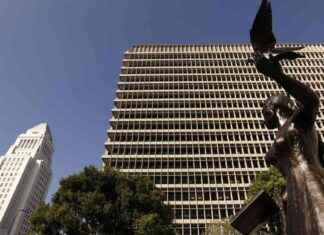anyone Who thinks that the extremely boring and incomprehensible international summits do not serve for nothing, which is what do look. Or, rather, I go to Almussafes in Valencia, and Vitoria, and explain it there. Because the G-20 summit that ended today in Buenos Aires may have serious implications in those two cities.
Although, in reality, Almussafes and Vitoria are the whites more evident. The trade war that may start in may between the USA and the EU for the trade of automobiles, and that will certainly be discussed in Buenos Aires by Merkel and Trump – two politicians who, to put it mildly, not well understood – could reach many other points of the Spanish geography. Virtually any site where you make a piece that will be placed in a car.
The question is simple. On the 12th of November, Trump met with its advisors on trade policy, which have a huge influence in their Government, to evaluate an investigation that started in may on the import of cars in the US. The research has a touch bizarre, because it is being conducted under Section 232 of the Act of Trade Expansion of 1962, which establishes the possibility of imposing tariffs on the import of products that affect the national security of the united states. To think that the Ford Connect Almussafes is a threat to u.s. national security indicates the character to be a marxist (Groucho Marx) of the u.s. trade policy. But the way things are.
Although the meeting was not public, everything indicates that the Department of Commerce will propose in February to impose tariffs. Trump will then have until may to make a decision. And once that happens, there will be two weeks of term until it is applied. So we are talking June. It sounds very far away, but is just around the corner. Above all, for the more than 150,000 jobs in the motor industry in Spain.
The rhetoric of the White House is that in June the Ford Connect Almussafes pass you have to pay a fee of 2% to 25% when they enter the US. Although we’re not just talking about cars… also of components. That affects Almussafes on the other hand, since there is manufacture engines Ecoboost four-cylinder to the US. And the plant of Daimler in Vitoria, which makes parts for the factory of that company in Charleston, in South Carolina. To be components, their fees are minimal, around 2%.
So, if Washington goes up to 25% tariffs on cars, and also to the components, Almussafes and Vitoria can go wrong stops. The problem is greater, because the impact could extend to the whole of Spain. Let Me explain: although the export of cars Spanish to the US is minimal (only 1.6% of the total production, according to the sector’s employers ‘ organisation, Anfac), the entire industry is interconnected. And what affects a country gives, indirectly, to others.
half of The parts of the car that makes Spain come from countries of the EU, according to u.s. consultancy Stratfor. If the germans carry their components factories to the USA to dodge the tariffs of Trump, will increase the costs of importing the components that make cars in Spain.
The political will of the Government of Trump to reach an agreement seems to be null. So hinted the ambassador of the EU to the united States, David O’sullivan, two weeks ago, at a breakfast at the International Trade Association of Washington (WITA, for its acronym in English). “It is, in a way, surprising,” explained a perplexed O’sullivan when the audience asked how it is possible that the united States must not cease to complain of european tariffs of 10% on the import of cars, but, at the same time, do not want to include that in the trade negotiations which both blocks kept since July.
Apparently, the U.S. wants to trade war. To date, he has not given any result, as has been demonstrated by the closure of six plants of General Motors this week. But the ideology is more important than the facts. Let’s hope that Merkel and Trump arrive, despite their dislike mutual, an agreement in Buenos Aires.
According to the criteria of
Learn more






